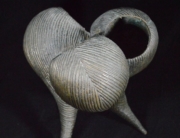[fullwidth backgroundcolor=”” backgroundimage=”” backgroundrepeat=”no-repeat” backgroundposition=”left top” backgroundattachment=”scroll” video_webm=”” video_mp4=”” video_ogv=”” video_preview_image=”” overlay_color=”” overlay_opacity=”0.5″ video_mute=”yes” video_loop=”yes” fade=”no” bordersize=”0px” bordercolor=”” borderstyle=”” paddingtop=”20px” paddingbottom=”20px” paddingleft=”0px” paddingright=”0px” menu_anchor=”” equal_height_columns=”no” hundred_percent=”no” class=”” id=””][fusion_text]Nothing would make me happier than to claim that I was born in the land of the Buddha. However, I am not comfortable with the “Buddha was born in Nepal” campaign that is sweeping the U.S. The tone and the zeal with which the campaign is run are discomforting. Although the campaign may have been started with good intentions, its outcome may actually do more harm than good. Let me explain.
First, the slogan on which the campaign is run is flawed. How can one change a historical fact by collecting a million signatures? If a fact of history can be changed by a group of people collecting a million signatures, then many established facts of the world history would be changed easily. For example, people in the Medieval Period believed that the earth was flat (by the way, there are a small number of people who still believe that the earth is flat), but did that change the outcome of the earth? No matter what people believed then and believe now, the shape of the earth has always been and will remain round. Truth always remains truth no matter what people try to alter it.
We could say the same thing with the birth place of the Buddha. That the Buddha was born in Lumbini is well established by literary, historical and archeological evidence. It cannot be changed, no matter whether a certain segment of populace believes otherwise. Those who say that the Buddha was born in India are just ignorant. One can do nothing about ignorant people, except educate them. It’s our fault that we haven’t done a job of educating them.
Why are we then creating a controversy when there is none? By the campaign we are only casting a doubt on a well-established fact. If it turns into a political issue it will anger India and it could turn the table against Nepal. As Ratna K. Shrestha, Anil Jung Shahi and others on this thread have suggested, signature petition is not the right way to establish what is already ours. Indians could easily collect more than a billion signatures to deny Nepal’s claim. If we go by volume, one billion is many times larger than one million. Then what? Who’s winning?
Second, we can’t prove that Lumbini was in Nepal 2500 years ago when Buddha was born.
History is proof that Nepal as a nation was founded only in 1769 after Prithvi Narayan Shah consolidated many smaller independent kingdoms. Prior to 1769 the designation of Nepal was applied only to the Valley of Kathmandu.
Third, we don’t know under whose suzerainty Lumbini came under at the time of the Buddha. It was perhaps under the suzerainty of the Maurayas who ruled from Magadha in present-day Bihar. Given the unclear historical situation, we have no solid ground to prove that Buddha was born in Nepal. The best safest thing we can do is to say that Nepal is Buddha’s birthplace because Lumbini at present is in Nepal. This is a fact that no one can deny, including Indian. Instead of shouting “Buddha was born in Nepal,” the wise thing for Nepalis to do is to claim that Buddha was born in Lumbini and Lumbini is in Nepal. End of story.[/fusion_text][/fullwidth]









Leave A Comment